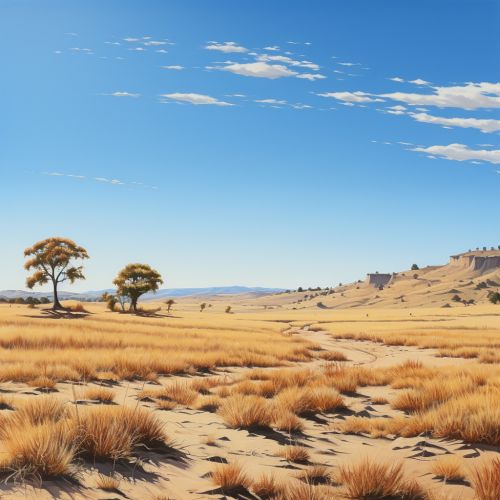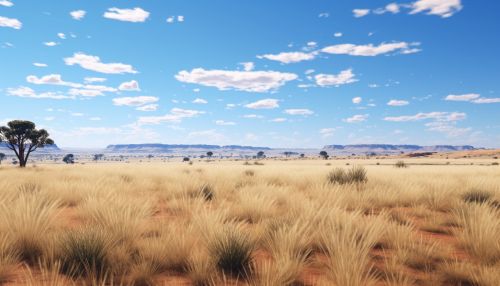Niger
Geography
Niger is a landlocked country in West Africa named after the Niger River. Niger is bordered by Libya to the northeast, Chad to the east, Nigeria to the south, Benin to the southwest, Burkina Faso and Mali to the west, and Algeria to the northwest. Niger covers a land area of almost 1,270,000 km², making it the largest country in West Africa. Over 80% of its land area lies in the Sahara Desert. The country's predominantly Islamic population of about 22 million live mostly in clusters in the far south and west of the country. The capital city is Niamey, located in Niger’s southwest corner.


History
Niger's history is characterized by several periods. It was once home to several ancient African empires, including the Songhai Empire and the Hausa kingdoms. In the pre-colonial era, the desert and savannah regions of Niger were important trade routes. In the 19th century, contact with the West began when the first European explorers—namely Mungo Park (British) and Heinrich Barth (German)—explored the area searching for the mouth of the Niger River. Although French efforts at pacification began before 1900, dissident ethnic groups, especially the desert Tuareg, were not subdued until 1922, when Niger became a French colony.
Politics
Niger's new constitution was approved in July 1999. It restored the semi-presidential system of government of the December 1992 constitution (Third Republic) in which the president of the republic, elected by universal suffrage for a five-year term, and a prime minister named by the president share executive power. As a reflection of Niger's increasing population, the unicameral National Assembly was expanded in 2004 to 113 deputies elected for a five-year term under a majority system of representation. Political parties must attain at least 5% of the vote in order to gain a seat in the legislature.
Economy
Niger's economy centers on subsistence crops, livestock, and some of the world's largest uranium deposits. Drought cycles, desertification, a 3.4% population growth rate, and the drop in world demand for uranium have undercut the economy. Niger shares a common currency, the CFA franc, and a common central bank, the Central Bank of West African States (BCEAO), with seven other members of the West African Monetary Union. Niger is also a member of the Organization for the Harmonization of Business Law in Africa (OHADA).
Demographics
Niger has a wide variety of ethnic groups as in most West African countries. The ethnic makeup of Niger is as follows: Hausa (53.0%), Zarma-Songhai (21.2%), Tuareg (11.0%), Fula (French: Peuls; Fula: Fulɓe) (6.5%), Kanuri Manga (5.9%), Tubu (2.5%), Arab (0.3%), Gourmantche (0.3%), other (0.2%). With an estimated population exceeding 22 million, Niger is one of the most densely populated countries in Africa.
Culture
Nigerien culture is marked by variation, evidence of the cultural crossroads which French colonialism formed into a unified state from the beginning of the 20th century. What is now Niger was created from four distinct cultural areas in the pre-colonial era: the Zarma dominated Niger River valley in the southwest; the northern periphery of Hausaland, made mostly of those states which had resisted the Sokoto Caliphate, and ranged along the long southern border with Nigeria; the Lake Chad basin and Kaouar in the far east, populated by Kanuri farmers and Toubou pastoralists who had once been part of the Kanem-Bornu Empire; and the Tuareg nomads of the Aïr Mountains and Saharan desert in the vast north.
See Also
West Africa Sahara Desert Songhai Empire Hausa kingdoms Tuareg people Zarma people Kanuri people
